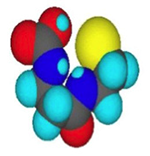There are Two Types of Immunity
Immunity is a protective mechanism in mammals described as a natural body function providing sufficient biological defenses to avoid infection, disease, and unwanted invasion by other organisms. The immune system is a collection of mechanisms in living organisms that protect against disease by identifying and destroying foreign and infectious agents.
Biologically and biochemically, the immune system is separated into two branches, cell-mediated immunity and humoral immunity. Cell-mediated immunity acts through activation of certain types of immune cells, which perform more direct protective functions against infectious and other invasive organisms and materials.
A humoral immune response is the aspect of immunity found in serum or cell-free body fluids (humours). Humoral immunity protects the body by producing substances called antibodies that bind to antigens on the surface of, for example, invading bacteria or microbes, flagging them for destruction. This mechanism is often referred to as an antibody-mediated immune response.
The VitaleGenx approach is designed to improve the humoral immune system’s health.


